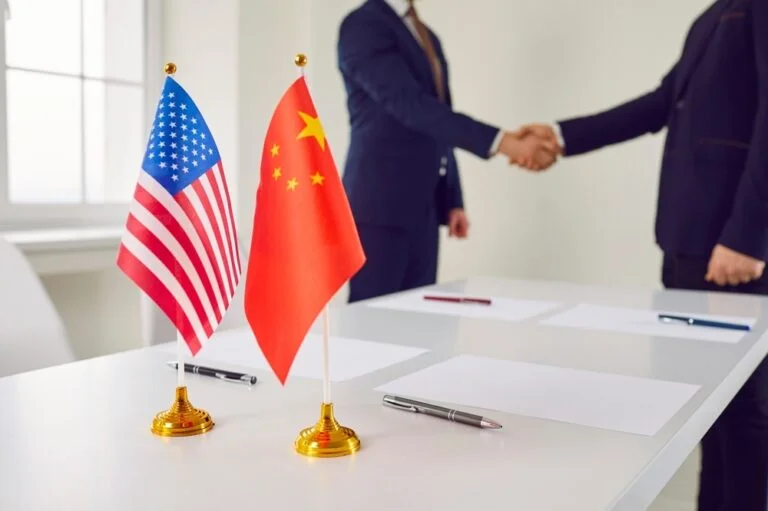What Does “Saving Face” Mean in Chinese Culture?

In the bustling streets of Beijing, a small act like a public apology from a store manager for a minor inconvenience can mean more than mere customer service. Instead, it’s a nuanced ritual of “saving face.” This practice is deeply rooted in the Chinese ethos and goes beyond the superficial to encapsulate a complex web of social dignity, respect, and interpersonal relationships.
In Chinese society, the art of “saving face,” known as “mianzi” (面子), holds immense significance in the world of social exchanges. It transcends the simple notion of protecting personal honor, and it embodies the broader responsibility of safeguarding the esteem of others and fostering equilibrium within the community.
A deep understanding of “saving face” is crucial, not solely for cultural adeptness but also for those looking to traverse the complex terrain of intercultural engagements with Chinese counterparts, whether on a personal or corporate level.
Recognizing and honoring this cultural nuance can mean the difference between a flourishing relationship and a faux pas that could cause one to “lose face” — a scenario everyone keenly avoids.
Related Reading: What is Guanxi 关系 & Its Meaning to Chinese Culture?
The origins of “saving face” in Chinese culture

The practice of “saving face” is deeply entrenched in China’s historical and cultural landscape, tracing back to ancient philosophies and social principles. This concept reflects Confucian doctrines that have profoundly shaped the societal framework, underscoring virtues such as filial devotion, structured social order, and reciprocal esteem.
These pillars of traditional ethos aren’t relics of the past but are vibrant, enduring strands that continue to mold the conduct and expectations of Chinese society today.
Learning Mandarin Chinese isn’t just an academic pursuit. Instead, it’s a gateway to deeper cultural immersion and understanding. As language learners begin mastering this rich language, they inadvertently gain insights into the social etiquettes and philosophies underpinning Chinese society, including the concept of “saving face.”
China’s social structure is meticulously crafted, with “saving face” acting as both a guiding principle and a measure of one’s reputation within the societal lattice. Individuals carry the weight of their family’s honor and the legacy of their forebears and progeny.
In this context, to “save face” is to uphold one’s position within the social hierarchy and to navigate communal interactions with deft respect and awareness. So paramount is the concept that it is intricately linked to the linguistic expressions, customary behaviors, and the collective consciousness of the Chinese populace.
The ability or failure to “save face” can significantly amplify or diminish one’s social capital, so understanding and adhering to this practice is pivotal in maintaining one’s standing within the community.
Related Reading: Do You Need to Learn Chinese to Visit China?
The multifaceted nature of “saving face”
The ethos of “saving face” is a multifaceted phenomenon that resonates personally and collectively. It involves an individual’s self-respect and the shared esteem of a group — whether that means familial ties, corporate entities, or the broader national identity. These aspects, while interconnected, demand distinct sensitivities and insights, showcasing the profound intricacies inherent in this cultural construct.
In every corner of Chinese life, the “saving face” principle is ever-present. It dictates how business is conducted, social gatherings are managed, and even how familial disagreements are settled.
A corporate leader, for instance, may exercise meticulous care in fulfilling an agreement to “save face” and avoid the dishonor associated with failure. Similarly, a household might address its internal differences behind closed doors, preserving a facade of unity to the outside world.
Such scenarios underscore the ubiquitous influence of “saving face” in navigating a multitude of circumstances within Chinese culture, highlighting its role as a pivotal thread in the societal fabric that binds individual actions to the collective perception of honor and respect.
When students of Mandarin engage with the language’s nuances, they encounter firsthand how respect, honor, and dignity are woven into communication. Phrases and idioms reflect the importance of harmony and the subtleties of indirect expression, offering learners practical illustrations of “saving face.” This linguistic landscape serves as a real-time laboratory for understanding and applying the principles of “saving face” in everyday interactions.
Related Reading: The Definitive Guide to Chinese Proverbs, Sayings, and Quotes
The importance of “saving face” in Chinese society
The act of “saving face” extends beyond individual concerns. It’s the cornerstone that upholds the complex mosaic of interpersonal relations in Chinese society. It operates as a safeguard, a form of social tact that mitigates potential discord, allowing for the delicate handling of conflicts and disagreements in a way that averts overt confrontation.
Embracing and respecting this principle is tantamount to endorsing a tacit covenant that assures mutual respect will preside over public dealings.
And regarding social interaction, “saving face” is essential. It’s the underpinning of trust and the currency of reputation, accumulated with time yet vulnerable to rapid depletion if mishandled. In the commercial arena, the esteem of “saving face” can even rival the tangible assets of a firm.
On the flip side, the inability to “save face” can precipitate enduring damage to personal and corporate reputations alike. The business landscape is rife with examples of entities that have suffered a loss of face due to scandals, underscoring the lengths to which they must go to reclaim their stature.

These scenarios highlight the profound and enduring influence of “saving face” on the conduct and customs within Chinese commerce and social interaction. As Mandarin learners progress, they often become more attuned to the cultural contexts that dictate social behavior.
This heightened sensitivity can transform their approach to cross-cultural communication, equipping them with the tools to speak the language and resonate with the cultural heartbeat of Chinese society.
Seeking equivalence: The Western counterpart to “saving face”
In Western cultures, the closest counterpart to the Chinese concept of “saving face” might be found in the value placed on personal dignity and reputation. While the West may not have an identical practice encapsulated in a two-word phrase, the importance of maintaining one’s standing and avoiding public embarrassment is a universally understood concern.
The Western equivalent to “saving face” could be seen in the practice of “keeping up appearances” or the emphasis on “reputation management.” These concepts reflect the idea that one’s public image and social standing are critical and that individuals should act to protect them from damage. This often involves managing impressions in various social contexts, from individual relationships to professional and public arenas.

In business, the Western notion of “reputation management” encompasses strategies employed by individuals and companies to preserve and enhance their public image, much like “saving face.” Public relations campaigns, strategic communication, and brand management are all modern-day manifestations of this concept.
For professionals and enthusiasts alike, proficiency in Mandarin paves the way for successful engagement in China’s social and business circles. The ability to speak the language breaks down barriers and serves as a sign of respect and effort to engage with Chinese culture on its own terms, which is often appreciated and can prevent situations where one might inadvertently “lose face.”
Though the cultural expressions differ, at their core, both “saving face” and its Western equivalents stem from a common human desire to be seen favorably by others and to belong to a community where one is respected and valued. Both serve as social lubricants, smoothing over potential conflicts and fostering a sense of connectedness and respect within the fabric of society.
Related Reading: 9 Key Differences Between Western and Chinese Business Culture
The challenges of “saving face” in a modern world
In an era where China’s embrace of global engagement intensifies, the time-honored ritual of “saving face” encounters the contrasting ethos of Western individualism. The forces of globalization encourage expanded cross-cultural dialogues, which, despite their many benefits, also open the floodgates to possible cultural misinterpretations.

International enterprises often grapple with the intricate task of respecting this Chinese cultural tenet while staying true to their distinct corporate principles and standards.
Today’s Chinese society finds itself at an inflection point, balancing the preservation of traditional values against the tides of contemporary influences. For the elder segment, “saving face” might still retain its conventional stringency, but the younger demographics are redefining this concept, seeking harmony with their own identities shaped by an increasingly interconnected global village.
This shifting paradigm poses nuanced challenges to the established perceptions of “face,” prompting a reevaluation of this age-old concept within the modern Chinese milieu.
Related Reading: Why Learn Mandarin Chinese?
Effective communication in China often means reading between the lines and understanding the unspoken. To avoid causing a loss of face, it’s essential to approach conversations sensitively and honor the indirect methods of expression favored in Chinese culture. For instance, being overly direct or confrontational can be perceived as disrespectful and should be avoided.
In cross-cultural settings, it’s always crucial to display cultural sensitivity. When engaging with Chinese counterparts, one must be aware of the cultural emphasis on “face” to ensure successful interactions. This can involve simple gestures, such as showing deference to elders or using titles and honorifics, which can go a long way in demonstrating respect and understanding.
Unveil the secrets to “saving face” and propel your Mandarin mastery
Begin on a journey through the profound legacy of “saving face,” a concept deeply rooted in the annals of Chinese culture, and understand its pivotal role in nurturing social harmony and building trust. We’ve looked into the nature of “saving face,” exploring its complex nature and the finesse required in modern communication within the Chinese context.
“Saving face” isn’t merely a historical relic; it’s a dynamic force sculpting the contours of contemporary Chinese social and business interactions. It’s a critical element in personal and professional spheres, shaping engagements and decisions.
As our world becomes ever more interconnected, grasping the subtleties of “saving face” transcends cultural boundaries, becoming a cornerstone for cultivating worldwide understanding and compassion. It’s about embracing global empathy and bridging cultural divides.
Now, are you ready to take your Mandarin skills to new heights and easily navigate these cultural nuances? With the FREE Mandarin Fluency Scorecard, you can swiftly assess your current linguistic prowess and receive a tailored guide to fluency in just moments. Don’t miss the chance to:
- Identify your unique challenges and obstacles to becoming fluent
- Uncover the next steps tailored to your specific Mandarin level
- Get a personalized report brimming with actionable insights.
This isn’t just an opportunity — it’s your next step towards cultural mastery. It’s FREE, effortless, and takes less than 60 seconds.
Dare to bridge the cultural gap. Take the Scorecard, and transform your understanding of saving face into a tangible asset in your journey to Mandarin fluency.
Yes! Take the Scorecard!








